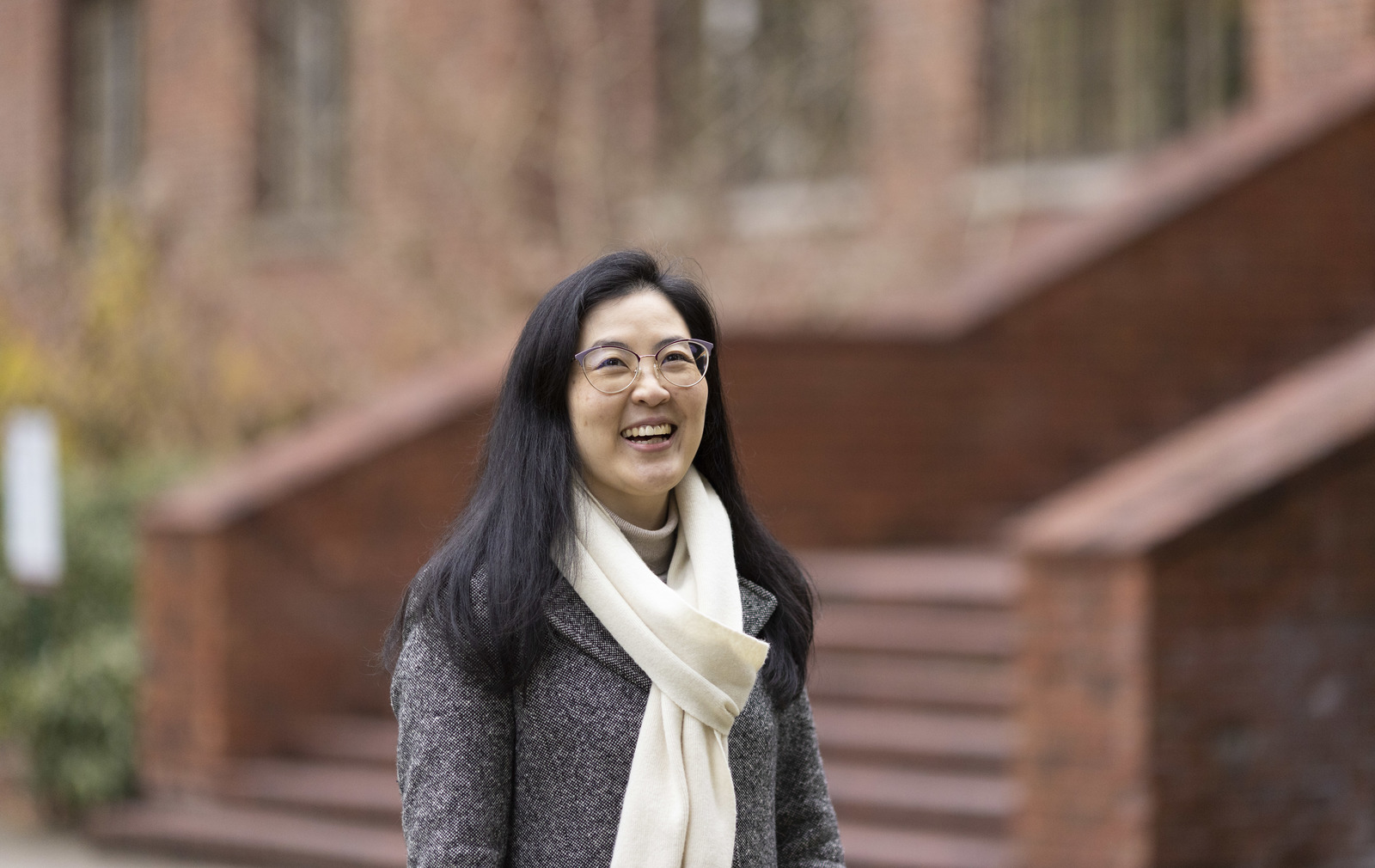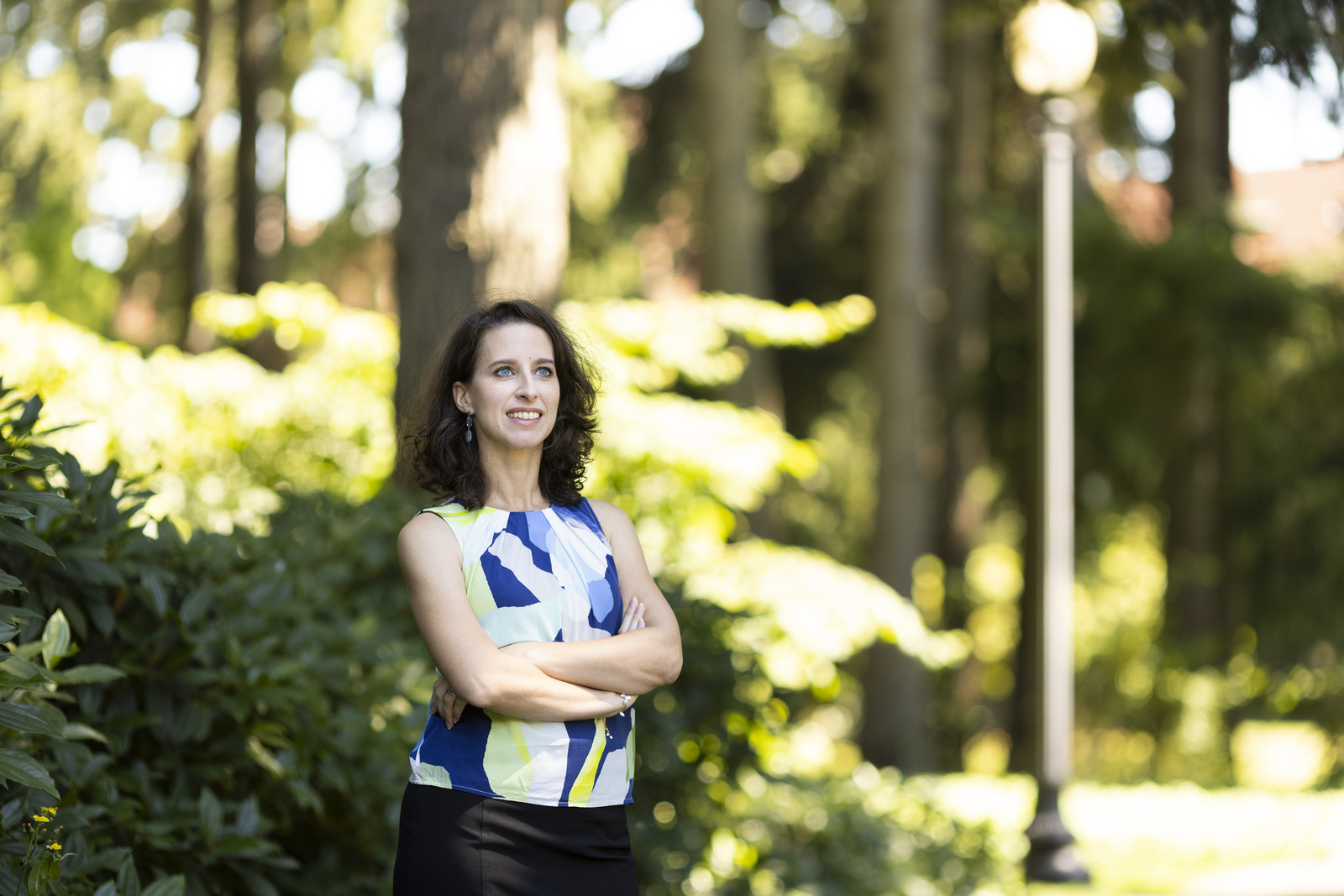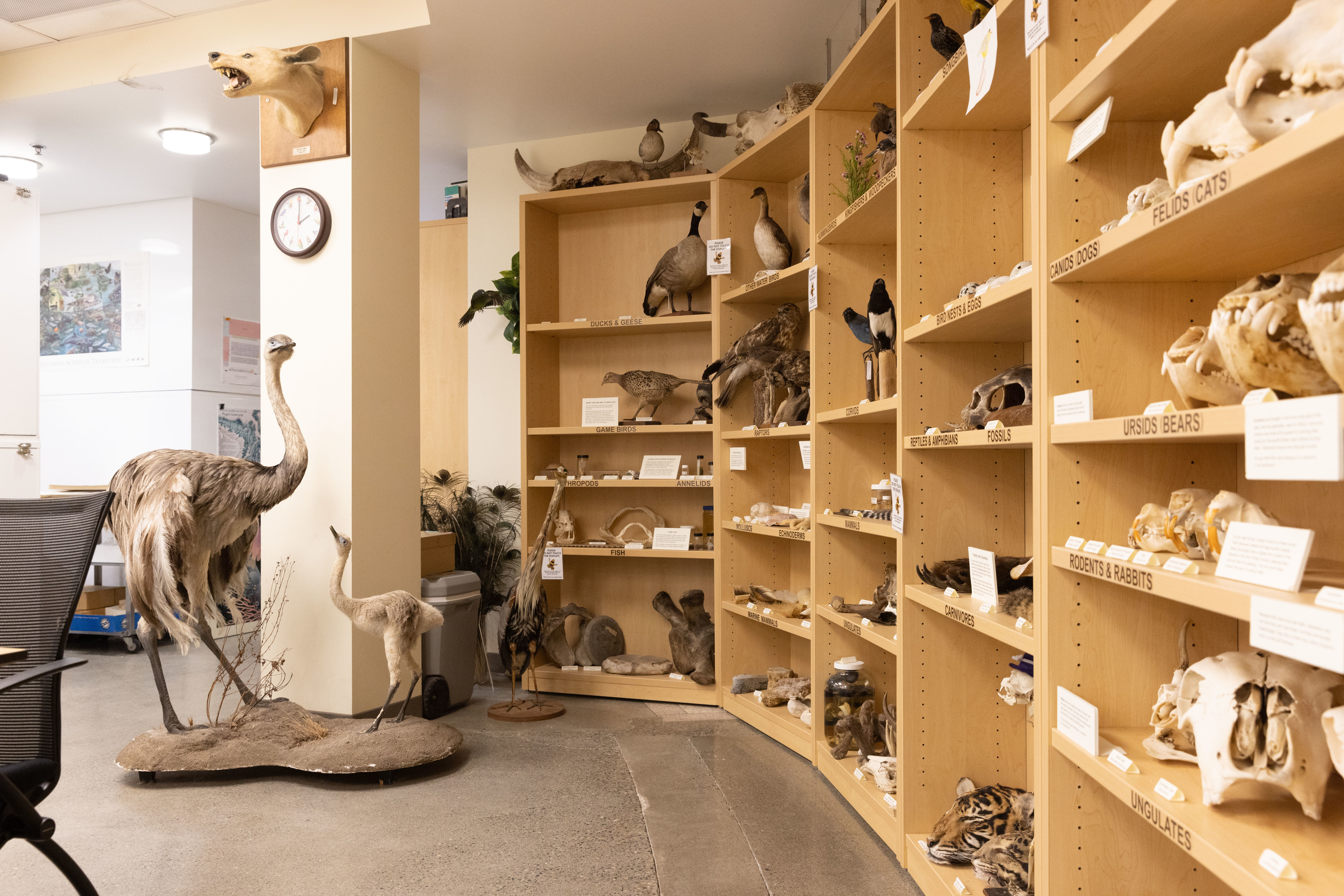University of Puget Sound philosophy professors Ariela Tubert and Justin Tiehen have been recognized for their work on the intersection of existentialist philosophy and artificial intelligence. The two have been awarded a National Endowment for the Humanities (NEH) Collaborative Research Grant of $147,840 for their project, "Robot Existentialism: Artificial Intelligence and the Limits of Rationality."
Tubert and Tiehen will co-author a book that looks at where existentialist philosophy and artificial intelligence meet, focusing on AI complexities and human agency, a person’s ability to make decisions, set goals, and navigate life based on their intentions and values. The project is inspired by writings of classic existentialist authors, emphasizing the value of making and shaping oneself. As AI technology continues to impact various areas of society, such as healthcare and communication, it prompts us to consider the ethical and existential implications of our relationship with it.

"Within AI research, intelligence is often understood or defined in terms of rationality, so that to build an intelligent machine is to build a machine that follows the principles of rationality set out in fields like decision theory and statistics," Tiehen said. "The upshot is that we think those approaches in AI that focus exclusively on rationality are leaving something out. They are leaving out that non-rational element that is essential to our own human intelligence and agency."
Tiehen is a philosopher with far-reaching contributions to the philosophy of mind. Additionally, Tubert is an expert in ethics, practical reasoning, and existentialism. Like Tiehen, her work has been featured in prominent philosophy journals.
"In thinking about the development of AI, like any other technology, we should be thinking about how this technology may transform human experience and how it can be good for the world,” Tubert said. “The field of AI ethics is focused on filling in an account of what it would be for AI to be a force for good and how it can avoid some of the threats to justice of some current AI systems."
Tubert and Tiehen have established themselves as thought leaders in philosophy and technology. Their joint appointment as recipients of the James M. Dolliver NEH professorship at the University of Puget Sound reflects their dedication and expertise in connecting the humanities and artificial intelligence.

"At Puget Sound, I teach a class in moral philosophy every year, and at the very end of the semester, I ask students to think about what principles they would use to program an AI system so that it would behave ethically and be morally responsible," Tubert said. "These questions naturally connect with the work throughout the semester about moral agency. Within philosophy, work focused on understanding moral agency also involves considering what is distinctive about human agency in comparison to alternatives, like that of gods or non-human animals."
Tubert and Tiehen's collaboration demonstrates how rigorous philosophical inquiry can influence the growing field of artificial intelligence. Their research provides a unique perspective on the relationship between humans and technology. As their findings extend beyond the classroom, they demonstrate the potential of interdisciplinary collaboration in shaping the future of AI.











